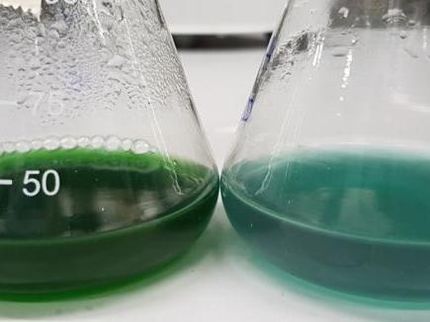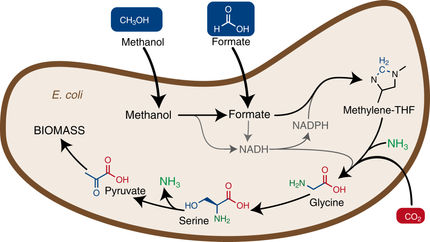"Superman" bacteria offer a sustainable boost to chemical production
A tailored “Superman cape” for bacteria
The industry—particularly the pharmaceutical industry—is deeply reliant on bacteria in their production. Now, researchers present a “superman suit” to put on the bacteria, so that they can produce chemicals with less energy, fewer solvents, and reduced waste.
Trillions of bacteria work in the chemical and pharmaceutical industries, helping produce everything from beer and facial creams to biodiesel and fertilizer. The pharmaceutical industry, in particular, relies heavily on bacteria for producing substances like insulin and penicillin.
Harnessing bacteria's industrial contributions have revolutionized global health, but their work comes at a high energy cost. Additionally, solvents and continuous production of new bacteria are often necessary, as they don't last long in their jobs.
A Tailored Superman Cape
Changzhu Wu, a chemist and associate professor at the Department of Physics, Chemistry, and Pharmacy, University of Southern Denmark, is focused on making industrial bacteria more robust and useful. His goal is to reduce the energy, time, and unwanted chemicals required to maintain bacteria, while also making them reusable so they can work longer before needing to be replaced.
His latest innovation introduces a type of "super-powered" bacterium and is now published in Nature Catalysis.
“We took a common industrial bacterium, E. coli, and essentially gave it a ‘Superman cape’ to enhance its catalysis capabilities. This reduces energy use and makes the production process more sustainable,” Changzhu Wu explains.
A Work Horse in the Industry
While E. coli is often associated with foodborne illness, it is widely used in the pharmaceutical industry to produce essential medicines like insulin and growth hormone through various chemical reactions.
The industry uses vast quantities of E. coli, and replacing them takes a toll on the environment, energy, and time due to factors like high temperatures, extreme pH levels, UV radiation, and exposure to solvents.
In developing his “Superman cape,” Changzhu Wu sought a material that could envelop the bacteria while still allowing them to interact with their environment to carry out the desired complex chemical reactions.
Complex Chemical Reactions in Short Time
The solution: a polymer coating that integrates with the bacterial cell membrane. Polymers are large molecules made up of billions of identical units called monomers.
“We essentially grafted an E. coli bacterium’s cell membrane with polymers, achieving two important outcomes: First, the bacteria became stronger and more efficient, and could carry out complex chemical reactions more quickly. Second, the bacteria became more protected, allowing for multiple uses. So, it’s a kind of ‘Superman bacterium’ that is more sustainable,” explains Changzhu Wu.
Original publication
Other news from the department science

Get the chemical industry in your inbox
By submitting this form you agree that LUMITOS AG will send you the newsletter(s) selected above by email. Your data will not be passed on to third parties. Your data will be stored and processed in accordance with our data protection regulations. LUMITOS may contact you by email for the purpose of advertising or market and opinion surveys. You can revoke your consent at any time without giving reasons to LUMITOS AG, Ernst-Augustin-Str. 2, 12489 Berlin, Germany or by e-mail at revoke@lumitos.com with effect for the future. In addition, each email contains a link to unsubscribe from the corresponding newsletter.































































